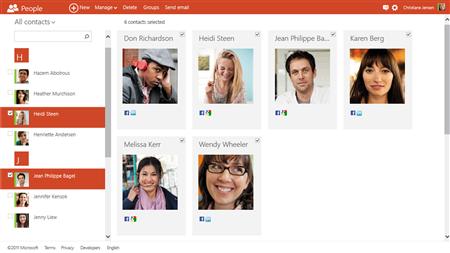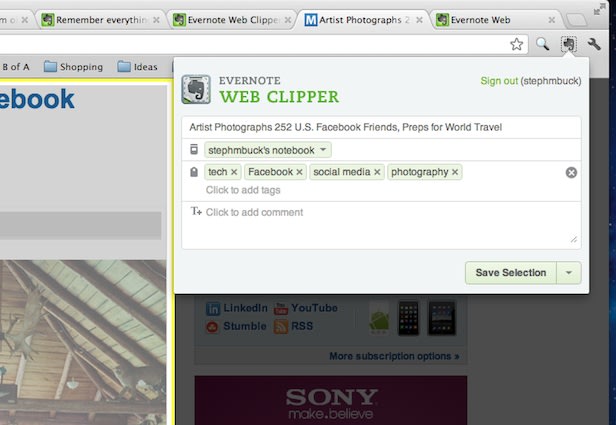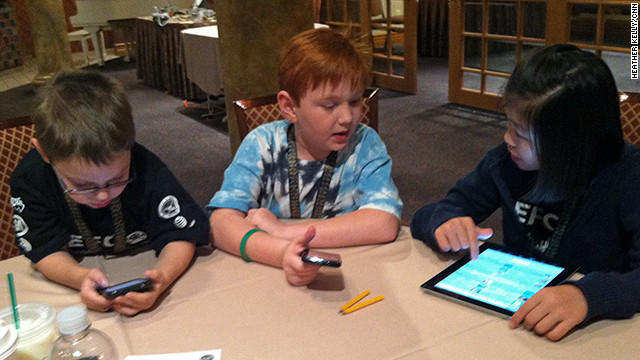LONDON (AP) — It's amazing how much trouble can be stirred up in 140 characters or less.
But also how much intimacy, excitement, global scope and, yes, general zaniness. For better and for worse, the 2012 Olympics are being shaped, shaken and indisputably changed by a social media revolution that four years ago in Beijing was in its toddlerhood.
Four days into the games, we've already seen (and this is but a partial list):
—an athletes' Twitter campaign objecting to sponsorship restrictions that went viral under the hashtag "WeDemandChange."
—a television viewers uprising over Olympic broadcaster NBC's decision not to live stream the opening ceremony.
—two athletes kicked out for racist tweets.
—a fan arrested Tuesday after a series of threatening posts, including one in which he vowed to drown a British diver, and another in which he told the athlete he had failed his dead father by not winning.
For Olympics organizers who pride themselves on putting on a carefully choreographed — obsessively controlled, some would say — 17-day show, the bursts of Twitter activity are like gamma rays escaping from a solar flare. They're impossible to stop and spellbinding to behold.
"I don't think we would seek to control it, nor could we," said International Olympic Committee spokesman Mark Adams. He said more than 15 million fans are following and participating in the Olympic experience via Twitter and other social media platforms, not to mention a good proportion of the 10,800 athletes. "Used the right way, we embrace social media," he said. "And, if you look at the guidelines, we positively encourage it."
The problem is, it isn't always used that way.
The immediacy and public nature of Twitter and its propensity to induce off-the-cuff irreverence, and sometimes breathtaking ugliness, has added a new and chaotic element to an event where everything from urine samples to sponsors' logos to London traffic is arranged with overcaffeinated attention to detail worthy of a royal wedding.
"Though organizers have spent months touting this as the first social media Summer Games, many of them seem to have been totally unprepared for the huge impact that Twitter has had," said Andy Miah, director of the Creative Futures Institute at the University of the West of Scotland. "I think there was some naivete about the likely role of social media from both participants and from the organizers. Many of them appear to have been wrongfooted."
Twitter has been used in many ways during its brief life — some very organized and tactical, some more spontaneous and disorderly. It has been a tool of protest and organization for the Occupy Wall Street movement and Arab Spring activists. Yet it has also led to the downfall of click-happy politicians, and the sometimes embarrassing late-night revelations of A-list celebrities.
The social network is now at the fingertips of 140 million users, up from a few million when the Olympics were held in Beijing in 2008. The San Francisco-based company says there have been more than 10 million tweets mentioning the Olympics during the first few days of the games. The exponential jump from four years ago has been driven by the rise of smartphones, now carried by spectators and athletes alike, each watching each other watch each other.
Which of course raises the question: When exuberant, often young athletes are going through the experience of their lives on one hand, and it's unfolding in a deeply controlled environment on the other, how do you make sure everyone gets what they need without it all turning to anarchy?
The IOC, Miah says, has tried to exert control by creating its own social media hub — gathering athletes' tweets and posts from Facebook, the other formidable player in this landscape. But it hasn't always worked out as planned.
On Saturday, U.S. women's soccer goalkeeper Hope Solo launched a Twitter outburst against Brandi Chastain, the former American soccer player who is now an analyst on NBC. "Its 2 bad we can't have commentators who better represents the team&knows more about the game," Solo wrote.
Dozens of athletes, including some British soccer players, have taken to Twitter to promote their sponsors' products, a violation of Olympic rules that could theoretically lead to their expulsions. Some Olympians, undoubtedly delighting agents and marketers back home, have started an online campaign to get the rules changed.
And it's not just athletes who are stirring the stew of controversy.
British lawmaker Aidan Burley earned a sharp rebuke from fellow conservatives after he tweeted that Danny Boyle's critically acclaimed opening ceremony, which told the story of Britain's history in a rousing mix of music, symbolism and showmanship, was "leftie multicultural crap."
A British journalist said his Twitter account was blocked after he criticized NBC's coverage of the opening ceremony and posted the e-mail of a network executive. And thousands of disgruntled Olympics viewers set up hashtag "nbcfail" on Twitter to air complaints about the media company's coverage.
Then there's the teenager from Dorset who was arrested Tuesday after a series of offensive and, authorities say, menacing tweets directed at British Olympian Tom Daley. The suspect could be prosecuted under British law.
And yet Twitter has fast become an indispensable part of the Olympic scene. It is as valuable to today's spectators as programs and scorecards were to another generation, and it is just as important to the athletes seeking to connect with supporters from behind the Olympic curtain.
For young fans, "take away Twitter and you take away part of the experience," said Steve Jones, a professor who studies online culture and communications at the University of Illinois at Chicago.
Olympians have used Twitter to tell supporters what they are eating, how they are feeling and who they are hanging out with. Jamaican mega-star Usain Bolt tweeted about his craving for chicken. American hurdler Lolo Jones revealed she's a virgin.
Perhaps that is too much information and intimacy for some, but Twitter, Facebook and their many copycats are not going anywhere, and it's time we got used to it.
Andy Hunt, the head of the British Olympic association, found himself dealing with a double whammy of Twitter eruptions — defending his star diver against social-network vitriol while vowing to look into whether the host country's soccer players should be disciplined for using the site for "ambush marketing."
"I think everyone knows, if you use social media extensively, you have to accept you get bad as well as good," Hunt told journalists. "And sometimes bad is wholly unacceptable."
___
Associated Press reporters David Stringer and Jake Coyle contributed. Paul Haven reported from London, Barbara Ortutay from New York.
___
Follow on Twitter: Paul Haven: http://www.twitter.com/paulhaven and Barbara Ortutay: http://www.twitter.com/barbaraortutay








